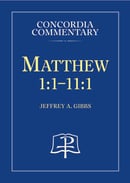When I work with couples in premarital counseling, there is a point at which we discuss leaving and cleaving, based on the creation account. “Therefore a man shall leave his father and his mother and hold fast to his wife, and they shall become one flesh” (Genesis 2:24). I stress the importance of establishing themselves as a separate family, apart from their families of origin. One question I ask is where they plan to spend their holidays, recognizing that both families will likely want them to spend the holidays with the respective sides. The point is to encourage newly married couples to make these decisions independently and as a team.
The Wise Men had to make a similar decision, although they arrived in Bethlehem some time after Jesus’ birth. We don’t know if these men were married. Because they were educated, they likely traveled with an entourage, which could have included spouses. Either way, they decided the trip was worth it.
A Look at the Greek
We learn that “wise men from the east came to Jerusalem,” seeking the one “born king of the Jews” (Matthew 2:1–2). The Greek uses the word μάγοι. It is fitting to simply use “wise men” in translation. Although we know the Wise Men had education in astrology, their training was likely more expansive, including medicine, prophecy, and dream interpretation. They likely originated in Persia or perhaps in southern Arabia. They came wishing to “worship” Jesus. This is a powerful statement, as the word in Greek, προσκυνῆσαι, is a combination of two words that literally mean “toward” or to “kiss.” To worship was such an act of submission as to be like a person kissing his master’s hand. Such worship also involved kneeling and placing one’s forehead on the ground.
King Herod’s Relationship to Judea
Matthew 2:3 reads, “When Herod the king heard this, he was troubled, and all Jerusalem with him.” Herod was not Jewish. The Romans placed him in charge of Judea. A ruthless lord, he put to death anyone he deemed a rival to his throne, including members of his own family. This explains his lethal intent toward anyone said to have been born the king of anything. He was responsible for the construction of many buildings in Jerusalem, including the temple, which was completed decades after his death.
In verse 4, we read, “And assembling all the chief priests and scribes of the people, he inquired of them where the Christ was to be born.” The chief priests and the scribes would be the perfect choice of information for Herod. The chief priests oversaw temple worship in Jerusalem and were trained experts in the meaning and application of the law. The scribes were those charged with inscribing the Word of God. These men had their beginning during the exile in Babylon. Much of the Jewish law had been destroyed during the Babylonian invasion. In exile, the scribes had the task of writing down God’s Word from memory.
The Wise Men’s Gifts
The Wise Men eventually reached where the Christ was, “and they fell down and worshiped Him. Then, opening their treasures, they offered Him gifts, gold and frankincense and myrrh.” These were precious treasures indeed. Frankincense was a perfume, myrrh an antiseptic ointment that was often used for burial purposes. It has been suggested that the gold points to Jesus’ royalty, the frankincense His priesthood, and the myrrh His burial.
Seeing the Law in the Wise Men
From the fact that the Wise Men came from the East, looking for the one “born king of the Jews,” we can gather they were Gentiles. Jesus Christ died for the sins of the whole world, both Jew and Gentile. There were many in Jesus’ day who did not believe this. One application of the Law could be made to Christians related to this: Do Christians believe that God truly “desires all people to be saved and to come to the knowledge of the truth” (1 Timothy 2:4)? In other words, have we sinfully decided in our hearts that some sinners are beyond the redeeming blood of Jesus Christ? In preaching and teaching this text, impress upon listeners and students that all have fallen short of the glory of God.
Gospel Message during Epiphany
We are mindful of the fact that Jesus took on human flesh and was born in Bethlehem for one final purpose: to die and rise from the dead. Aside from His teaching and miracles, the Son of God entered the sinful world to be the sacrifice for our sins. He was a king like no other, laying down His own life for the good of His people. Jesus was both our High Priest and the Lamb of God slain at the altar of the cross.
Not only did God give His only Son for the salvation of the world, but in His Holy Spirit, our Lord also brings the benefits of Christ’s work to individuals. Without Christ, sinners wander in the darkness of sin without a star, seeking the wisdom of the world for answers. God’s Word explains that until conversion, we are blind, dead, and enemies of God. At conversion, each Christian has his or her own epiphany. Either through our hearing or seeing the Gospel, or in our Holy Baptism, the Holy Spirit revealed the wisdom of Jesus Christ: that God, in His mercy, gave up His greatest treasure so that through faith we would receive forgiveness of sins and everlasting life.
Scripture: ESV®.
Discover more about the Wise Men through how the Greek and historical context point us to Jesus.

























